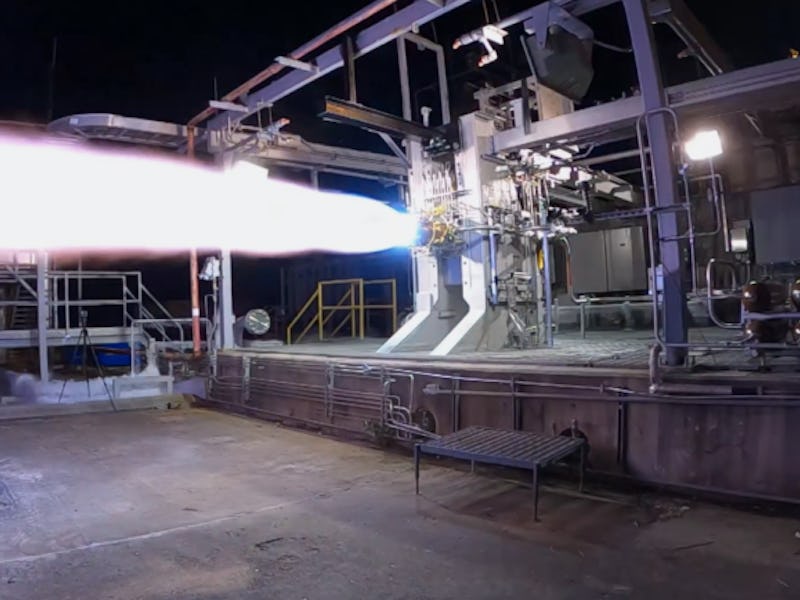A startup is poaching one SpaceX's key employees
SpaceX, a one-time startup, must now contend with being the status quo in a rapidly changing industry.

SpaceX is getting a little smaller. Zach Dunn, senior vice president of production and launch for SpaceX, is leaving the Southern California rocketry firm for another in the same area: Relativity Space. Relativity Space describes itself as the “first and only company to automate aerospace manufacturing by integrating intelligent robotics, software, and proprietary metal 3D printing technology.”
Reacting to the news over Twitter, SpaceX CEO Elon Musk said that “Zach made a significant contribution to SpaceX & is a friend. I wish him well as he tries something new.”
Elon Musk wishing his former employee well.
Tim Ellis, chief executive of Relativity, said in an interview with SpaceNews that Dunn “has deep and demonstrated expertise in launch vehicle development and operations. “What stuck out to me most was his proven ability to solve some of the hardest engineering problems facing our entire industry.”
First broken by Ars Technica, Dunn is the highest level SpaceX executive to leave for Relativity, which was founded by a former SpaceX employee. It also signals how, after over a decade of overturning the status quo, SpaceX finds itself as the industry leader from which younger companies try to steal some glory (and profits).
Relativity’s main current product is Terran 1, a rocket built entirely with 3D-printed parts. Capable of carrying approximately 2,755 pounds of cargo into low Earth orbit, the Terran 1 is not really a direct competitor to SpaceX’s Falcon 9 at that moment. That carrying weight is only 6 percent of what a Falcon 9 can bring into space, but that isn’t the point.
Terran 1 could offer things that no SpaceX rocket can match. Relativity’s web page promoting the Terran 1 does not lead in terms of the rocket’s size, speed, or carrying capacity. Rather, it focuses on how quickly the thing can get built: “raw material to flight in less than 60 days,” it promises.
What Relativity Space hopes its new factory in Long Beach, CA, will look like within the next few years.
The market for high-end space courier contracts is increasingly competitive and takes a very high buy-in. The companies that fight for these contracts, like SpaceX, Boeing, Blue Origin, and United Launch Alliance, aren’t keen to be looking for more competition. All sorts of institutions, from military to academia, want to book a ticket on these flights. Tickets are expensive if you miss your chance, it’s a struggle to find another.
For now, at least, Relativity wants to focus on smaller contracts. Their 3D rockets could flood the market, if they work, reducing price points by a significant measure. Last year, the company signed a contract with Spaceflight Industries, a launch services company focusing on bundling smaller projects and getting them into orbit.
“With Spaceflight’s leadership in rideshare launch solutions, state-of-the-art integration infrastructure, and experience, we are excited to work together to offer industry-defining lead time, flexibility, and cost for smallsats and cubesats and meaningfully expand the total launch capacity available through Spaceflight’s offering,” Ellis said in a statement last year.
The company has a few other contracts as well, with satellite operator Telesat and Thai startup mu Space, which leaves them with only one big thing to do: get their rocket into space.
They hope Dunn, whose work ethic stood even amidst the famously intense SpaceX workplace, will get them there. Dunn will oversee the production of the Terran 1, with hopes to have it escaping Earth’s gravity in 2021.
Without any military contracts to deem them essential through the Covid-19 pandemic, Relativity’s work on the Terran 1 has essentially been at a standstill since mid-March. It will likely be Dunn’s job to get everything back to speed.